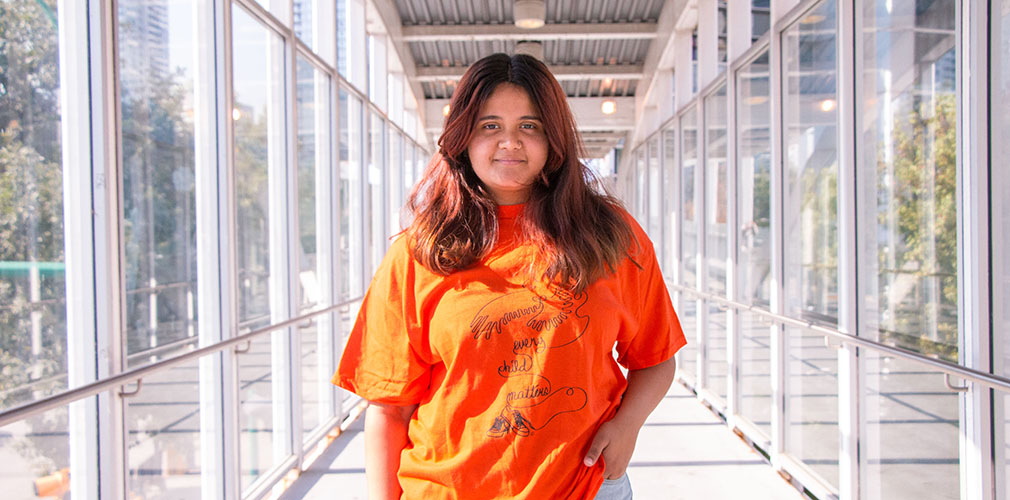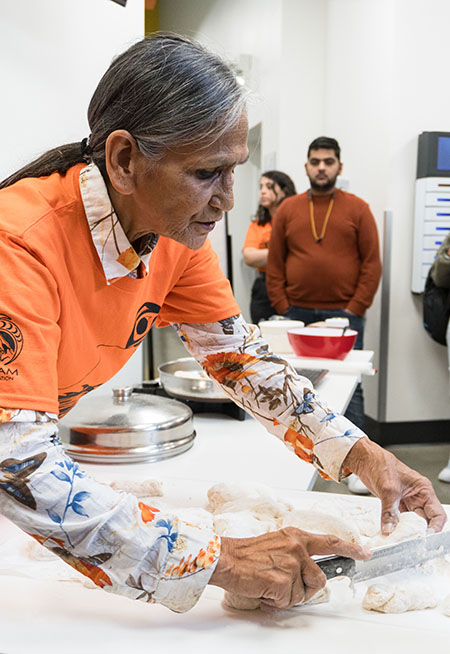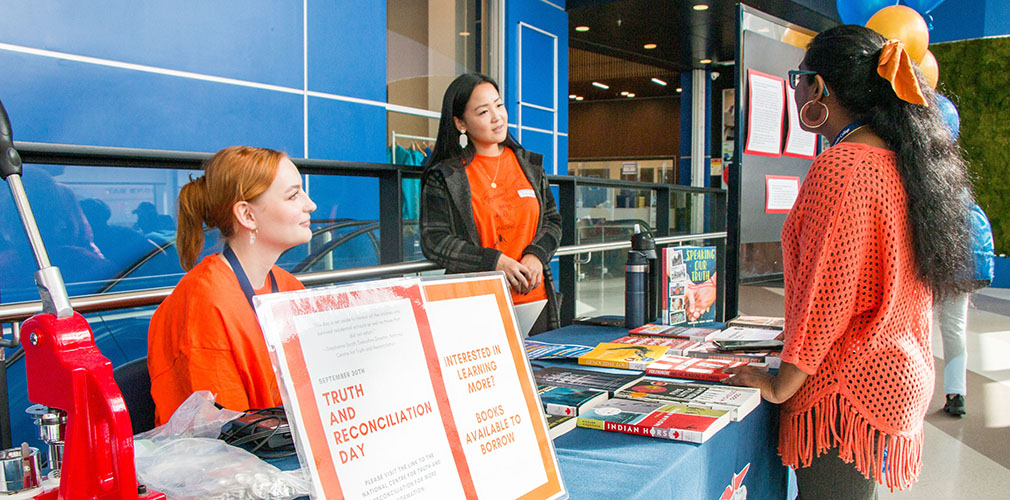

”Education got us into this mess and education will get us out of it.”
September 30th is National Truth and Reconciliation Day in Canada. As this date approaches, Alexander College Library encourages you to reflect on the above quote.
The quote is about residential schools, which operated from the 1880s to the last few decades of the last century.
The idea for the schools came from the Canadian government, and the administration of the schools was done by churches.
Indigenous children were stolen from their families and all that they knew and were forced to go to the schools.

The goal of residential schools was to change the Indigenous children from who they were as individuals, family members, and members of Indigenous communities, into “normal” Canadians.
Normalcy was defined as fitting in with the White society in Canada. Traditional ways, customs, languages, spiritualities, and so forth were to be removed from the children.
Scholars have called this cultural genocide, meaning that the dominant society in Canada was trying to kill off the culture of the Indigenous peoples.
Horrifically, cultural genocide was not the only form of genocide that was practiced.
In BC alone, hundreds of remains of Indigenous children have been found on and around residential schools, showing that many children died while forced to attend residential schools.

The above historical outline helps us understand the meaning of Sinclair’s quote.
The White Canadian politicians and clergy were educated to believe that their society was right, and that it was their responsibility to change Indigenous peoples.
The cultures and lifestyles of the Indigenous peoples, so the politicians and clergy were told, were “primitive,” “brutal,” “savage,” and “anti-Christian.”
They believed that they could “educate” the Indigenous peoples out of being who they were.
Therefore, education got Canadian society and the Indigenous peoples into the mess of the residential school system.
But there is hope for optimism.
Education can happen when we take a history course on Indigenous peoples at Alexander College.
Education can happen when we reflect on how minorities are treated in our home countries.
Education can happen when we reflect on National Day of Truth and Reconciliation upon how we can be a force for change in Canadian society.
We can stand up to intolerance and racism, and we can vote for politicians who propose positive solutions to the legacy of the residential school system if we immigrate to Canada and become citizens.
Therefore, education will get us out of the mess of the legacy of residential schools.

Alexander College is pleased to offer resources dealing with Indigenous themes in our Library. We also have an Indigenous Studies Guide.
Our Library staff are eager to assist you in your research and are available by appointment through WCOnline.
Check out our National Truth and Reconciliation Day display at the Library and take a look at the featured books highlighted in the display.
LibraryReconciliation means healing from past trauma, coming to mutual understanding, and fixing the problems that we face today.
Together, we can make Reconciliation a reality!
Alexander College acknowledges that the land on which we usually gather is the traditional, ancestral and unceded territory of the Coast Salish peoples, including the territories of the xʷməθkwəy̓əm (Musqueam), Skwxwú7mesh (Squamish), and Səl̓ílwətaʔ/Selilwitulh (Tsleil-Waututh) Nations. We are grateful to have the opportunity to work in this territory.
Alexander College acknowledges that the land on which we usually gather is the traditional, ancestral and unceded territory of the Coast Salish peoples, including the territories of the xʷməθkwəy̓əm (Musqueam), Skwxwú7mesh (Squamish), and Səl̓ílwətaʔ/Selilwitulh (Tsleil-Waututh) Nations. We are grateful to have the opportunity to work in this territory.